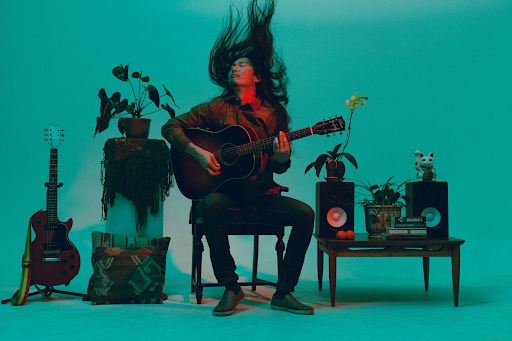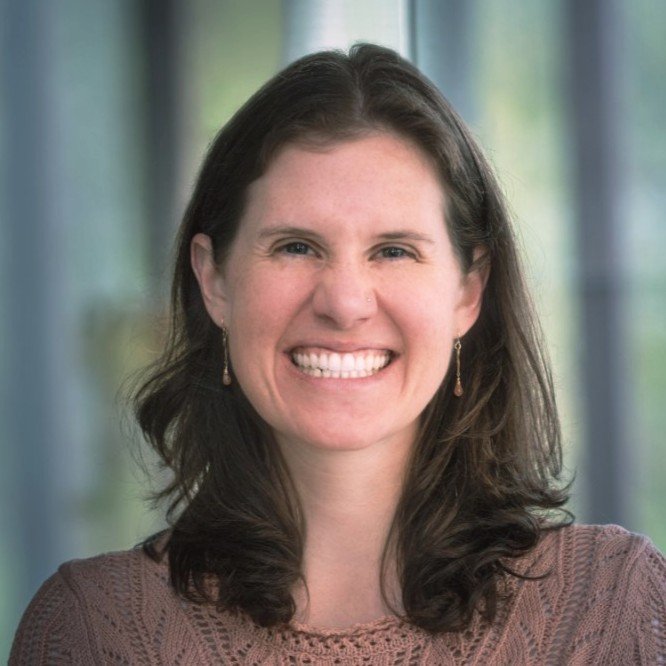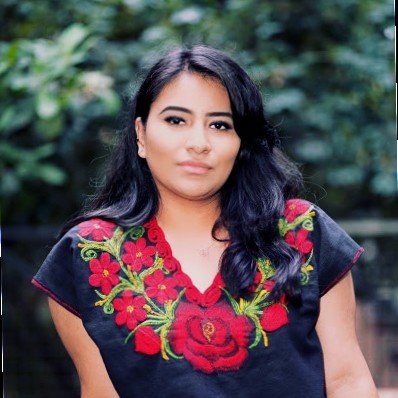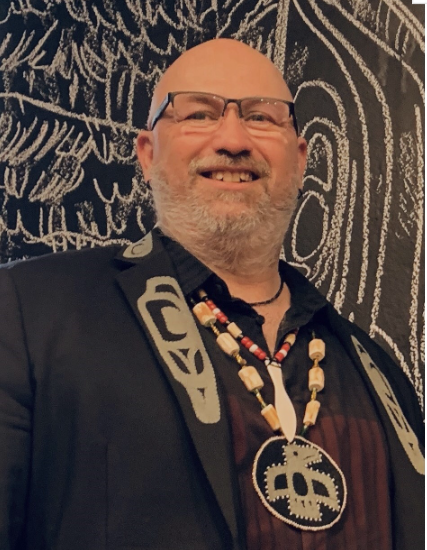Daniel Pak
Co-founder and Executive Director Totem Star
Interview by Cindy Fu & Addison Pann
November 14, 2022
Photo by Avi Loud
Co-founder and executive director of Totem Star Daniel Pak shares his experiences being an advocate for digital equity in the city of Seattle, especially for underrepresented youth music artists. Daniel Pak has done incredibly meaningful work for the community through Totem Star, a nonprofit organization founded in 2010 that’s centered around engaging underprivileged youth through music, training, and one-on-one meetings throughout the pandemic.
Early in the pandemic, Daniel Pak and the Seattle Music Commission realized there were 55,000 Seattle Public School students without access to reliable internet, and later formed a digital equity subcommittee with other advocates like Sabrina Roach.
Pak shares with us some of his thoughts and experiences in the field, as well as his motivations for continuing to do valuable work to support youth and provide them with access to a variety of technology.
Q. What is your definition of Digital Equity, and what about it motivates you? What are you passionate about in this space?
DP: The first word, of course, that comes to mind is equity, and what equity means is access. It means making sure the playing field is even for everyone involved in the community. That's back to what I was talking about earlier with the work we did with Sabrina [on the digital equity subcommittee].
It’s making sure every young person has a device, and more. You can't just invite people to a party and expect them to know what to do. I think part of it is helping them navigate, right? You can’t look at your guest list and say, “Oh, I guess this doesn't look so diverse. So let's invite some diverse people.” You can check off that diversity box, then the people show up at the party, and you don't even introduce them to anybody. They end up hanging out on the walls and on the fringes, and honestly, that could be more detrimental and traumatic to people to know that they were invited to a place, and even though they're in the room, they feel so disconnected, you know. Invisible, perhaps.
So part of that digital equity piece is not only providing the materials, the resources, like the devices, the Internet, but also helping folks navigate. And I think equity has a lot to be said about creating a welcoming environment for everybody, regardless of background, regardless of socioeconomic class, regardless of ethnic background, race, gender.
I feel like equity is something that we're always going to be working towards, and it's the work that doesn't get budgeted for in any organization. You have your annual operating budgets but the equity work is always additional.
Every organization to be really down with equity, needs to put in an extra layer of funding for unknown equity issues. I mean, equity is the work that we do outside of a forty hour work week, right? So you're either committed to it or you're not.
Equity is about patience, whereas tech moves very, very fast. Where tech is about swiping right as quickly as you can, equity is about developing relationships. Equity is about being human. Equity is about bringing humanity back into our priorities in a time where tech is pushing us to do things faster than ever.
Q. What values and/or principles are important for everyone in this space to do good work?
DP: I got invited to a Seattle University graduate class on nonprofit leadership and they wanted to talk about leadership. Are you familiar with the Tao Te Ching by Laozi? An ancient Chinese philosopher from around the 4th century BC. It was at the cusp of when supply and demand was reaching a point where the bartering system, the communal system, the sharing system, was moving more into our modern capitalistic system. He didn't want anything to do with it. So he packed up his ox cart. He foresaw what was going to happen with corruption. He was about to get out of town and become a hermit, and one of his disciples saw him at the gate and said, “Laozi, how can you leave us? We won't have a mentor, what will we do without your teaching?” And Laozi’s like, “Brah!” So he hops out of his ox cart, busts out eighty-one sheets of paper and his fourth century Sharpie, and he writes eighty-one verses on a variety of topics on humanity. There is one verse that he wrote on leadership that I really love, and it talks about three different forms of leadership.
One is good leadership where the ruler is loved by their people. Second is a terrible leadership, with a dictator, ruling by fear and coercion. But Laozi said the best type of leadership is when you walk into a room, and you can't even tell who's leading, because everybody is just doing the work. That also goes to your last question about equity, because we just hired a whole bunch of new folks for Totem Star. In fact, we're starting to hire from previous artists who were with us as teenagers. We're reaching this beautiful cyclic moment.
And you gotta be patient. You gotta spend time onboarding and everything, teaching that knowledge, that wisdom. Simple nuances to the work are incredibly important. When you look at the health [of the organization], every single person matters.
So going back to your question, in order for people to do their best work I think you really have to take a look at your leadership strategy, and how you work with people, how you let people fail, because only through failure can we evolve. I don't want to spend all my time micromanaging people. I want people to have a basic understanding of the work, a basic foundation. But we're all different. We all learn differently. We all have learning differences. Every single human being is on the “spectrum,” if you will, in some sort of way. Right? We have to give everybody the tools, but also the freedom to know that it’s okay to fail, because that’s how we learn.
Q. What have been big wins for you and how did they happen? What sorts of supports were needed for them?
DP: If we're talking about Totem Star, it all goes back to the young people. If our young people are thriving, if we see on a daily basis that the work that we're doing, the mentorship, the space that we create for them is helping them to feel liberated. That they can bring their best self, their worst self, or any self in between on a daily basis. That they're actively going through transformation, evolution, learning, and that they're building community and creating art. That's the whole point. That's all the work is, creating that space, allowing them to receive that mentorship, to grow. That, to me, are the most powerful moments.
I see it in myself when I struggle through something in my own artistry at the beginning of the pandemic. I thought, “Okay, we're stuck at home. So what am I gonna spend all this time doing? I'm pretty much caught up with every Netflix, Hulu, Disney show that could possibly be watched. I need to also work on myself.” So I spent a lot of time at the piano, at my guitar, and instead of trying to do the same things that I've been doing for the last twenty years, I tried different things. I tried to expand the voicings of the chords that I would play. Expand the chord progressions I could access, practicing and reaching different parts of my voice.
I was just going through my old photos and videos, and I found some videos of early pandemic me recording myself, and I had to delete some of that stuff. It was bad, like “Oh my God!” But I see where I am today I realize- Wow, just two years ago, when I was going through this intentional growth moment, and pushing myself, oh man. You have to fail. You have to try and challenge yourself, and find really uncomfortable, vulnerable moments in order to grow.
To see that not only in myself, but to see that in our young people and anyone we work with for that matter, that’s the main thing to me.
Q. What is your organization’s goal in moving towards digital equity? What steps are being made by your organization to reach that vision?
DP. Well, we’re building a 2,000 square foot world-class recording studio in the heart of downtown Seattle, at the historic King Street Station. To me, that’s kind of unheard of. To reference the Music Cities Convention in Tulsa, a global convention, I’m meeting directors of the office of film and music from Adelaide, Australia, the UK, the Director of the Texas Music Office, the Director of Washington D.C. Film and Music Office. In all these cases, what everyone's trying to build and what has brought everyone together to this conference is thriving music cities. How do artists and creatives work with government, philanthropy, real estate development, to get everybody in the same room to build something for the future?
When I look at the health of any organization, I think of it in three P’s: People, place and program. We have our people, we’ve identified our artists who really want to be a part of Totem Star and built programs for them. But the missing piece is always ‘place’. So by building our young people a new home, that in itself is providing equity. Access.
When we work in music it's digital too. I would say one effort that we did in the early pandemic was realizing we're all stuck in isolation but our young people need equipment. So we flipped our budget, we reallocated money, and we started buying a ton of audio interfaces, microphones, cables, midi controllers. We would check in on our list of all of our young people one by one, asking, “What do you need to be successful?” That's what we spent all of our work doing, and when we find out whatever whatever our young artists needed, then we'd send them the gear, or we deliver it to their house, and then we get on Zoom. It'd be like, “Okay, rotate right there in the corner of your bedroom. That's where you should prop up your mattress and maybe put the mic there, direct it 45 degrees into the middle of your room.” We would do these navigation check-ins with them on a one on one basis, and that’s really Totem Star.
It’s not really a place where 30 young people sit in a room and everyone has a guitar, “Okay let’s all play a G.” Totem Star is all one on one from artist to producer. Like, “Where’s your book of composition? Book of lyrics? What are the chords you’re talking about, how you feel, what does this song mean to you? What are your references like? Play off some Youtube links that show references.” I mean, we're working with the artists on a one on one basis. And I think that's what creates that sort of incredible, human, person to person bond. That's really what equity is about.
I look at that thirty person guitar class, and that's good, all thirty of them might have the sheet music, they might have the guitar. But how do you know that they're getting the navigation at all? How do you know they’re getting the equity they need?
So when you do it on a one-on-one basis it takes a lot more time, it takes a lot of patience. But you’re really building relationships on a one on one basis.
On any given school quarter we have about fifty [artists] that are really deeply participating. Through how we’ve learned at Zoom, we’ve produced full-length albums, eps, singles, all via Zoom. Sharing a Logic screen and sending recording stems, vocal stems or guitar stems at home, back and forth. It’s kind of crazy that it worked out that way. But since 2010 when we’ve started, we’ve now worked with nearly 5,000 recording artists, all ages 14 to 25.
Q. What’s an example of some good work so far and who’s been doing it? Who would you like to give a shout out to?
DP: I gotta give a shoutout to our partners that are gonna be with us at King Street Station. Red Eagle Soaring, they’re a Native youth theater company run by Russel Brooks. There’s also the Rhapsody Project that’s being led by Joe Seamons, they focus on teaching young people roots, music, Americana music all through an anti-racist lens.
There’s also the Jackson Street Music Program led by Dr. James Gore, and that’s all about music and music entrepreneurship, learning the business side of it, because one of our biggest supporters is Sir Mix-a-Lot, and he’ll always talk about, “For every hour of time you spend in the studio making the music, you better be spending at least another equal hour working on the music business or the plan.” Because if you’re just making music, that's one thing. But in order to create a living out of it or to monetize it, you have to work on the music business side of it as well. That's even more important. And that career connected learning piece is something that Totem Star is committed to, and it's only going to grow as our space grows. Being able to partner with folks like Jackson Street Music Program and especially being in a space together is really important.
Whip Smart, led by Amy Lillard of Washington Film Works, is the final partner at King Street station, but there's so many groups doing good work out there. 206 Zulu, Creative Justice, Vera Project, it would be unfair to try to list them all. But I feel like all of us that are working in the music and arts ecosystem specifically centering around young people [are doing good work].
What we're realizing is it's not a Totem Star artist or a Vera Project artist or a 206 Zulu artist. They are all of our young people. We're just satisfying a certain niches of interest. But at the end of the day we all have to partner more and work together because we're all actively, collectively taking care of a village of young people, and we have to see it that way, especially knowing that we’re all in competition for the same funding existing in this non-profit industrial complex. So we have to be very aware of that and support each other through the process.
To learn more about Totem Star visit: https://totemstar.org/





